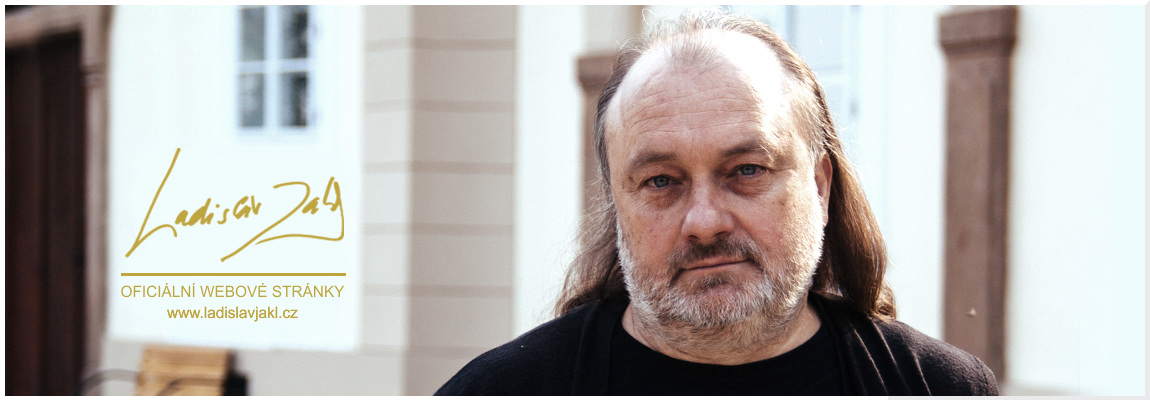|
How to break the vicious circle related to North Korea?
Publikováno 26.10.2017 v kategorii: Publikované články
by Ladislav Jakl, Director of Social Studies, Václav Klaus Institute North Korea has been arming at a terrifying rate. The world community, and mainly the USA, has been resolutely demanding the stoppage of the North Korean arming projects, and while posing their resolute demand, they have also issued a threat of mass military intervention. As a reaction to this threat, North Korea intensifies its arming. As a reaction to that the USA, NATO and all great powers (to various degrees) escalate their threats. As a reaction, North Korea itensifies its arming.
Is it possible to break this vicious circle somehow? Yes, it is. However, none of the world deciding powers (mainly the USA, whose responsibility for this conflict is far from the greatest) have so far dealt with it. Why and how was exactly this circle „formed“? Even though it is clear, nobody has ever visibly dealt with this issue. The world powers use the whole range of tools towards North Korea with the aim of bringing the local regime into line. These range from sanctions and embargos and diplomatic pressure up to explicit warnings of direct military intervention, destruction of the regime and even the whole country. What outcome may applying all these tools (especially the military threat) possibly have? Basically, there are three theoretical possibilites. The USA (and other powers) will continue sending their stronger and stronger warnings to North Korea until it becomes a political folklore similar to the seven hundred and sixty five already „really final“ warnings issued by China to the Soviet Union during the Ussuri cross-border conflict in the sixties. In such a case, North Koreans will be speaking something about „a caravan, barking dogs, or a dog who does not bite“, about „a mountain which gave birth to a mouse“, or they will offensively add another Asian poetic similes. For Kim’s regime this will be a permanently welcoming argument that the external threats coerce the regime into dictatorship reinforcement. The reputation of the USA and other countries will be injured and will become a laughing stock. And another „adventurous“ regimes around the world will obtain a signal that any threats like this can be multiplied by one hundred. Possibility number two: all the threats will be accentuated to such an extent that the USA itself will feel that it is really necessary to carry out an attack in order not to suffer such a disgrace – an attack on the country stuffed with arms and full of determined fanatics. This would not result in a one-off limited military intervention, as one may dream of. The results would be immense horrors of war, a damaged country on both sides of the demarcation line and the consequent breakdown and chaos minimally for a whole generation affecting millions of people. Possibility number three: the American military threats dawn on Kim, he will dissolve the army and his political party, he will call free elections and shoot himself. The enthusiastic North Koreans will elect their new government of right and democracy and they will happily start consuming coke and hamburgers. Unfortunately, there is no other remaining possibility. We have already ruled out the soft version of possibility number two – it would necessarily end up with a purely two-sided confrontation. Any soft version of possibility number three, which has been probably dreamt of by the American or other strategists (stopping the escalation of arming, allowing an international supervision of the arming projects, elimination of all weapons of mass destruction and at least partial easing of the regime) is even less likely than the clearly unreal possibility number three. Why is that? The text you are just reading has been written to explain this. Why do countries build up their military arsenal? Or in more general terms: what are weapons to serve for? Any small child is able to answer this question. To fight the enemy. To defend or to attack. However, this is not a complete answer. The most frequent reason for keeping weapons is to avoid any fight. Weapons serve for deterring a potential enemy. In most cases weapons serve this purpose for smaller and weaker parties, for those who know well that any conflict with a potential enemy cannot be won (and that is why he does not have the slightest intention of attacking because he would lose) but who want to send a message that any enemy will suffer a pain with victory – and thus should decide if such a victory is worth it. It works like this for millions of years even in nature. Animate beings protect themselves against any potential attack in several principal ways: camouflaging (a country however cannot camouflage itself), escaping (a country cannot escape), using armour (boarder fortresses and lines of defence were broken through many times in history) or just what we are talking about here – deterring. A wasp will not overpower you. It knows it as well as you do. If you crush it in your hand, you will easily kill it. However, it warns you with its sting and colour: yes, if you want to, you can kill me but it will hurt you a lot. Is it worth it for you? This tactics has been common for so many, especially small creatures. And it frequently happens that a much stronger and bigger attacker rather backs away because potential injuries would cost him dear even in case of his victory. The ability to cause pain to an attacker must be however demonstrated loud and visibly. And what is it like among people? It’s the same. Spears and later on bows and arrows were definitely invented as a tool for hunting. In the history of human civilization they however played a more fundamental role. They wiped out the difference between the weak and strong ones. Or they at least significantly diminished the difference. Suddenly, even a stronger party started to be scared that it would not get away with taking things from a weaker one whenever it wished to do so. It was rightfully scared that the blow from a weaker one would be rather painful. Thus our society started organizing itself in a more complicated way than before. This is described in detail for instance by Christopher Boehm in his book Hierarchy in the Forest. And, long before him, by a Greek historian Thúkydidés in his book Peloponnesian wars where he quoted a Spartan fighter, captured by an Athenian, and crying that bows don’t differentiate between the brave and the faint-hearted or the strong and the weak. His muscles and fighting skills did not defeat the Athenian bow. Handguns shifted the progress forward even more fundamentally. There is the reason why the Americans used to say that, due to Samuel Colt’s revolver, the implicit right of a stronger one stopped existing. And when going roughly one hundred years further forward after Colt, we have to admit that the cold war did not grow into the third world war for the single reason: due to the deterrent effect of nuclear weapons. (Thus, it feels quite amusing that this year the Nobel Price for Peace was awarded to the movement that wants to remove this „safeguard“ of peace which has been functioning best at all times .) Let’s get back from the animate beings and history to our present days and the tensions around North Korea. Does anyone really believe that North Koreans want to attack America, Japan or any other neighbour in the south? It is easy to imagine that your enemy is a madman without any reasonable judgement. But just as Hitler wasn‘t, neither the Kims or any other dictators have been mad. Quite the opposite – they usually behave in a very rational way. It is only their objective which is „perverted“. And on their way to reach their goal, they usually proceed in a very logical, precise way. What is the objective of the North Korean regime? To maintain the power, its bizarre cruel system which combines an oriental dynastic despocy with juche, this strange ideology of an absolutely strenuous self-sufficiency. Is it in the interest of such a regime to trigger a conflict which would definitely wipe them out? Certainly not. Why have they been arming then? Because they are scared. Is there anything to be scared about? Sure. (See the note.) Without their deterrent power which they have, they would have been already removed by the outside powers that follow the „many-times-tested“ recipe for „export of democracy“. Through the „muscle-flexing“ and unwise words of Donald Trump, the American President, the outside world makes it clear that it really wishes to overthrow them, even if violence is needed. This is why Kim III spares no effort to send a „wasp“ signal: yes, you destroy me, if you want to. But it will hurt you. Is it any good to harass with threats and weapons in this situation? To be solving this situation caused by fear by producing even bigger fear? No, there isn’t. It is counter-productive. And it forms the so called vicous circle: Kim is getting further evidence that the threat is real and thus he wants to repulse it by arming even more while saying: look, I can strike back even when in death throes (like the bee) in such a way that will hurt even you, the stronger ones. And, as already said, he justifies the whip in his hand against his own people by defending himself that in the situation of external danger he cannot do otherwise. No, neither in this conflict can you say that where force is not a solution, you then use a greater force. If we wish for the end of the North Korean cruel regime (which all world democrats do), then we need to put the so far unfruitful and risky tactics of threatening to an end. We need to take the opposite tactics: to negotiate, communicate, reduce fear and distrust, to make business and develop relations. The regime will collapse by itself with time, since democracy can seep through to North Korea by means of developing relations instead of a full isolation. I spent the first thirty years of my life in communist Czechoslovakia. And I remember this: Do you think that we regarded the fact that the international ice hockey federation repeatedly commissioned communist Czechoslovakia to hold an ice hockey world championship as a betrayal of democratic countries? Did we blame the world ice hockey leaders and politicians for collaborating with our communist regime? Of course not, we welcomed the opportunity to peek into the free world. Did we want our sport and cultural representation exclude the democratic countries from all competitions due to this collaboration? Of course not. Since any hole in the „iron curtain“ was welcome. Isn’t this food for thought when speaking about North Korea? —————————– Note: Jimmy Carter, a former not very successful US president, but later on a very successful international crisis negotiator, wrote on this issue a few days ago (October 4) in the Washington Post. He said that he had a chance to meet both predecessors of the current North Korean leader and they had behaved „completely rationally with the aim of preserving their regime“. The only thing they had been calling for was „direct talks with the US that would lead towards a permanent peace treaty to replace the still- prevailing 1953 cease-fire that has failed to end the Korean conflict. They wanted an end to sanctions and a guarantee that there will be no military attack on North Korea..“ Carter also had „a chance to meet local starving people who were, despite of their suffering, still completely loyal to their top leader. They were likely to be the most isolated people on Earth, while most of them unanimously believed that their biggest threat was an eminent military US attack“. He also added that „until now, the severe economic sanctions have not prevented North Korea from developing a formidable military force, including nuclear long-range missiles, utilizing a surprising level of scientific and technological capability“.. According to him there is no hope that Noth Korea is willing to renounce its nuclear weapons, since „they have seen what happened in a denuclearized Libya and assessed the doubtful status of US adherence to the Iran nuclear agreement.“ Therefore, Carter appeals for negotiations and agreement. He can see the signs of willingness to do so in Rex Tillerson, the US Secretary of State.. |




17. 12. 2024, 19.30 – Na Slamníku, Bubeneč: koncert rockové kapely Folimanka Blues 20. 11. 2024, 19.00 – Pivovar Nestville, Hniezdne, Slovensko, česko-slovenské Superfinále První pivní extraligy 14. 11. 2024, 11.00 – Společenský sál hotelu U Zeleného stromu v areálu pivovaru Zlatá Kráva v Nepomuku, L. J. moderuje Slavnostní vyhlášení cen Sdružení přátel piva 08. 11. 2024, 18.00 – Pivovar Hendrych, Vrchlabí, L. J. v porotě degustační soutěže pro pivovarské domovarníky 19. 10. 2024, 09.30 – Břevnovský klášter, L. J. v mezinárodní porotě pivní degustační soutěže Golden Bohemia 12. 10. 2024, 09.00 – Hotel Samechov, Chocerady: L. J. moderuje konferenci SOSP Konzervativní kontrarevoluce 09. 10. 2024, 19.30 – První Pivní Tramway, finále patnáctého ročníku degustace českých ležáků První pivní extraligy 25. 09. 2024, 19.30 – První Pivní Tramway, druhé semifinále patnáctého ročníku degustací První pivní extraligy 21. 09. 2024 – Nostalgická myš, Kokořín – Šemanovice: koncert kapely Folimanka Blues 11. 09. 2024, 19.30 – První Pivní Tramway, první semifinále patnáctého ročníku degustace První pivní extraligy 08. 08. 2024, 19.22 – Modrá vopice, Vysočany: L. J., zahraje v rámci večera Open Mike, věnovaného Kaštánkovi 31. 07. 2024, 18.00 – L. J. hostem v pořadu Nepodvolení televize Protiproud 29. 07. 2024, 19.30 – První Pivní Tramway, ochutnávka nealkoholických piv v rámci vložené degustace První pivní extraligy 01. 07. 2024, 19.30 – První Pivní Tramway, degustace asijských továrních ležáků v rámci vložené degustace První pivní extraligy 26. 06. 2024, 11.00 – Prima CNN: L. J. živě v debatě o česko-slovenských vztazích 19. 06. 2024, 19.00 – První Pivní Tramway, degustace slovenských továrních ležáků První pivní extraligy pro rok 2024 15. 06. 2024, 19.30, Na slamníku, Bubeneč: koncert L. J. s kapelou Folimanka Blues 26. 05. 2024, 19.00, Vinyl Club, Klatovská třída, Plzeň: koncert L. J. s kapelou Folimanka Blues 11. 05. 2024, 10.00 – Pivovar Na Rychtě, Ústí nad Labem, L. J., v degustační porotě soutěže Ústeckého pivního jarmarku 10. 05. 2024, 14.00 – Pivovar Na Rychtě, Ústí nad Labem, L. J., v degustační porotě soutěže Piva Ústeckého kraje 07. 05. 2024, 19.00 – První Pivní Tramway, páté kolo degustace českých továrních ležáků První pivní extraligy pro rok 2024 25. 04. 2024, 18.00 – Radio Prostor, L. J. hostem pořadu Prostor pro dva M. Stoniše 24. 04. 2024, 19.00 – První Pivní Tramway, čtvrté kolo degustace českých továrních ležáků První pivní extraligy pro rok 2024 20. 04. 2024, 12.00 – Výstaviště Zahrada Čech, Litoměřice, L. J. na Mezinárodním pivním festivalu a vyhlášení soutěže Zlatá pivní pečeť 09. 04. 2024, 19.00 – První Pivní Tramway, třetí kolo degustace českých továrních ležáků První pivní extraligy pro rok 2024 06. 04. 2024, 12.00 – Zámek Litomyšl, L. J., v porotě degustace národní soutěže Litomyšlský korbel 26. 3. 2024, 19.00 – První Pivní Tramway, druhé kolo degustace českých továrních ležáků První pivní extraligy pro rok 2024 25. 3. 2024, 13.00, Křižíkovy pavilony, Výstaviště Praga – Holešovice: L. J. v diskusi na téma „Kam se poděla tradiční česká hospoda a kam se budou pivní podniky a kultura pití piva dále ubírat“ v rámci Prague Bar Show 22. 03. 2024, 18.00 – Pivovarský dvůr, Zvíkovské Podhradí: L. J. v porotě degustační soutěže Jarní cena českých sládků 18. 03. 2024, 12.00 – Pivovar Velké Březno: L. J. předává ocenění za vítězství ležáku Březňák za vítězství ve 14. ročníku degustace českých továrních ležáků První pivní extraligy. 14. 03. 2024, 10.00 – Rozhovor L. J. pro blog Tomáše Lukavce Zákony bohatství na YouTube 12. 3. 2024, 19.00 – První Pivní Tramway, první kolo degustace českých továrních ležáků První pivní extraligy pro rok 2024 11. 03. 2024, 18.00 – Rozhovor L. J. pro Rádio Xaver na téma „Média“ 28. 02. 2024, 19.30, Vagon, Národní třída: L. J. s kapelou Folimanka Blues vystoupí na Cimrfestu, koncertě pro muzikanty, kteří už nejsou mezi námi 22. 02. 2024, 14.00, Rádio Prostor: rozhovor L. J. Markétou Šichtařovou v pořadu Prostor pro dva 01. 02. 2024, 11.00, Pivovar Regent, Třeboň – L. J. předává pivovaru Regent cenu za vítězství zdejšího ležáku v degustační soutěži Česko-slovenské Superfinále První pivní extraligy 30. 12. 2023, 16.00, Kbelský pivovar – L. J. předává Kbelskému pivovaru cenu za vítězství zdejšího ležáku v degustační soutěži První pivní extraligy Král Prahy 22. 12. 2023, 17.00 – L. J. živě v TV Protiproud v pořadu Jistě, pane tajemníku 10. 12. 2023, 19.30, Na slamníku, Praha-Bubeneč: Předvánoční koncert rockové kapely Folimanka Blues 08. 12. 2023, 17.00, Strahovský klášter sv. Norberta: L. J. na vyhlašování vítězů mezinárodní degustační soutěže piv Golden Bohemia 03. 12. 2023, 19.00, divadlo SEMAFOR, Dejvice: L. J. „křtí“ nové klipy sboru Gospel Time Suzany Stirské 24. 11. 2023, 10.50, Ostrov: beseda L. J. se studenty ostrovského gymnasia 22. 11. 2023, 19.30, Svätá Barborka, Banská Štiavnica: Česko-slovenské superfinále První pivní extraligy 19. 11. 12.00, kulturní dům Kladno-Sítná: L. J. v porotě největší soutěže kapel hrajících naživo Skutečná liga 17. 11. 2023, 22.00, ČT24: L. J. hostem pořadu Události, komentáře na téma výročí 17. listopadu 1989 16. 11. 2023, 18.00, UOL Klub, Praha 5 – Přednáška L. J. na téma Největším ohrožením naší prosperity…jsme my sami https://www.uolklub.cz/uol_event/listopad-2023/ 15. 11. 2023, 17.00, Grand Hotel International – Představení knihy IVK Sebedestrukce Západu: Pád zrychluje https://www.institutvk.cz/akce/predstaveni-knihy-sebedestrukce-zapadu-20-pad-zrychluje.html 11. 11. 2023, 14.00, První Pivní Tramway – Král Prahy: degustace První pivní extraligy všech mikropivovarských ležáků vyráběných na území na území hlavního města 09. 11. 2023, 10.00, Rodinný pivovar Bernard, Humpolec – L. J. moderuje slavnostní předávání Výročních cen Sdružení přátel piva 21. 10. 2023, 14.00 – L. J. po devětadvacáté účastníkem Memoriálu Matěje Kuděje 19. 10. 2023, 17.00 – L. J. v živě vysílaném rozhovoru s Petrem Hájkem na TV Protiproud 14. 10. 2023, 10.00 – Břevnovský klášter, L. J. v porotě mezinárodní degustační soutěže Golden Bohemia 11. 10. 2023, 19.30 – První Pivní Tramway, finálová degustace českých továrních ležáků První pivní extraligy pro rok 2023 30. 09. 2023, 18.30, Balbínova poetická hospůdka, Vinohrady: afterparty na počest třiceti let trvání rockové kapely Folimanka Blues 26. 09. 2023, 18.00, Pivovar U Fleků, Nové Město: večer na počest třiceti let trvání rockové kapely Folimanka Blues 12. 9. 2023, 19.30 – První Pivní Tramway, druhé semifinále degustace českých továrních ležáků První pivní extraligy pro rok 2023 11. 09. 2023, 19.55 – L. J. hostem živě vysílaného pořadu Aby bylo jasno s moderátorkou Kateřinou Dostálovou 29. 8. 2023, 19.30 – První Pivní Tramway, první semifinále degustace českých továrních ležáků První pivní extraligy pro rok 2023 29. 08. 2023, 17.00 – L. J. natáčí pořad X talk s Lubošem Xaverem Veselým 14. 08. 2023, 10.00: hotel Rabbit, Trhový Štěpánov – přednáška L. J. na téma „Pohled na potravinovou bezpečnost a politiku Fialovy vlády“ na půdě platformy KLUB 2019 12. 07. 2023, 18.00 – L. J. v pořadu Jistě, pane tajemníku na TV Protiproud 23. 06. 2023, 19.45, Pizza Micio, Plešivec, Slovensko: koncert L. J. s rockovou kapelou Folimanka Blues 31. 05. 2023, 09.30: CNN Prima News – L. J. živě o přijet eura a o situaci v EU 25. 05. 2023, 19.00: L. J. hostem živě vysílaného rozhovoru na Radiu Xaver 12. – 13. 05. 2023, Ústí nad Labem, Kostelní náměstí: L. J. v porotě degustační soutěže Pivo Ústeckého kraje 05. 05. 2023, 16.00, TV Kolektif: L. J. v pořadu Debatní klub diskutuje s ekonomem Kovandou o vyhlídkách českého hospodářství 02. 05. 2023, 16.00, TV Protiproud: L. J. živě v pořadu Hovory s nepodvolenými – Jistě, pane tajemníku 01. 05. 2023, 15.00, Památník Vítkov: L. J. svým projevem zahajuje shromáždění podporovatelů iniciativy Zachraňme náš stát 25. 4. 2023, 20.00 – První Pivní Tramway, páté základní kolo degustace českých továrních ležáků První pivní extraligy pro rok 2023 22. 04. 2023, 15.30, Výstaviště Zahrada Čech, Litoměřice: L. J. s rockovou kapelou Folimanka Blues v rámci programu Mezinárodního pivního festivalu 15. 04. 2023, 19.30, Hi-Fi klub, Plzeň: L. J. s rockovou kapelou Folimanka Blues 14. 04. 2023, 19.00 – Warehouse, Liberec – L. J. s rockovou kapelou Folimanka Blues 11. 4. 2023, 19.00 – První Pivní Tramway, čtvrté kolo degustace českých továrních ležáků První pivní extraligy pro rok 2023 28. 3. 2023, 20.00 – První Pivní Tramway, třetí kolo degustace českých továrních ležáků První pivní extraligy pro rok 2023 25. 3. 2023, 18.00 – Pivovarský dům Zvíkov, L. J. v degustační komisi a na vyhlašování Jarní ceny českých sládků 23. 3. 2023, 17.00 – Protiproud TV: L. J., živě v pořadu Hovory s nepodvolenými 16. 3. 2023, 14.00 – Pivovar Uhříněves, L. J. předává ocenění za vítězství ležáku Alois v soutěži První pivní extraligy o nejlepší ležák z pražských pivovarů Král Prahy 15. 3. 2023, 20.00 – První Pivní Tramway, druhé kolo degustace českých továrních ležáků První pivní extraligy pro rok 2023 06. 3. 2023, 9.30 – Poslanecká sněmovna, vystoupení L. J. na semináři „Manželství pro všechny a Istanbulská úmluva“ 01. 3. 2023, 19.00 – První Pivní Tramway, první kolo degustace českých továrních ležáků První pivní extraligy pro rok 2023 28. 02. 2023, 19.30 – Vagon, Praha – Národní třída: L. J. s kapelou Folimanka Blues na Cimrfestu – koncertě pro muzikanty, kteří už nejsou mezi námi 07. 02. 2023, 19.30 – Jazz Rock Cafe, Plzeň: L. J. kmotrem knihy Jaroslava Pompa Rok hlupců 02. 02. 2023, 11.00 – pivovar Zubr, Přerov: L. J. předává vedení pivovaru Zubr cenu na vítězství v česko-slovenském Superfinále První pivní extraligy |
























































































